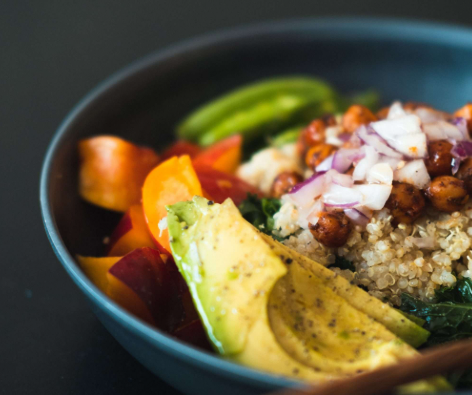
Fermented foods have become a staple in many diets around the world. They offer more than just interesting flavors; they also bring a host of health benefits. But what exactly are fermented foods, and why should you consider incorporating them into your daily routine? In this blog, we’ll explore what fermented foods are, their benefits, and 20 of the healthiest options you can include in your diet.
What Are Fermented Foods?
Fermented foods are those that have undergone a process where microorganisms such as bacteria, yeast, or fungi break down sugars in the food. This results in a change of texture and flavor, along with potential health benefits. Through this process, fermented foods can be preserved longer, improve nutrient absorption, and provide a rich source of probiotics.
The process of fermentation varies depending on the food, and it can involve lactic acid, ethanol, or acetic acid fermentation. Each method produces different types of foods, like kimchi, kombucha, and miso. Some of these foods also contain beneficial probiotics, which are live bacteria that promote a healthy gut.
Health Benefits of Fermented Foods
Fermented foods come with a variety of health benefits, particularly for digestive and immune health. Here are some of the top benefits:
- Gut Health: Many fermented foods contain probiotics, which can help balance your gut microbiome, improve digestion, and reduce bloating and constipation.
- Better Nutrient Absorption: Fermentation can increase the bioavailability of certain nutrients, making it easier for your body to absorb important vitamins and minerals.
- Weight Management: Some studies suggest that fermented foods can help regulate appetite, improve insulin sensitivity, and support healthy blood sugar levels.
- Enhanced Immune Function: Probiotics from fermented foods stimulate immune responses, helping your body fight infections and manage inflammation.
- Mental Health: There’s emerging research linking gut health with mental health, and fermented foods may help improve mood and reduce symptoms of anxiety and depression.
- Reduced Inflammation: Some fermented foods can reduce chronic inflammation, which is linked to conditions like arthritis and inflammatory bowel disease (IBD).
- Cardiovascular Health: Fermented foods may help lower bad cholesterol levels and regulate blood pressure, supporting heart health.
20 Healthy Fermented Foods You Should Include in Your Diet
Now that you know the benefits, here are 20 fermented foods you can add to your meals:
- Kombucha: This tangy, fizzy tea is made by fermenting tea with a symbiotic culture of bacteria and yeast (SCOBY). It’s packed with probiotics and antioxidants.
- Kimchi: A spicy, tangy Korean dish made from fermented cabbage, radish, and other vegetables. It’s rich in fiber, vitamins, and probiotics.
- Kefir: A fermented milk drink with a variety of bacteria and yeast, kefir is great for gut health and may help with lactose intolerance.
- Sauerkraut: Fermented cabbage that’s rich in probiotics and fiber. It’s known for supporting digestion and gut health.
- Miso: A fermented soybean paste used in soups and sauces. It’s rich in B vitamins and has anti-inflammatory properties.
- Yogurt: A well-known fermented dairy product. Look for “live and active cultures” on the label to ensure it contains probiotics.
- Pickles: Cucumbers and other vegetables fermented in brine, which can provide probiotics if made without vinegar.
- Natto: A Japanese fermented soybean dish, known for its strong flavor and sticky texture. It’s rich in protein and vitamin K2.
- Tempeh: A fermented soy product with a nutty flavor and firm texture, making it a great meat substitute.
- Fermented Cheeses: Some cheeses like cheddar, parmesan, and brie contain probiotics and are rich in calcium and protein.
- Sourdough Bread: Made from naturally fermented dough, sourdough is easier to digest than regular bread and has beneficial lactic acid bacteria.
- Olives: Fermented in brine, olives are a source of antioxidants and healthy fats.
- Apple Cider Vinegar: Fermented apple juice with potential benefits for digestion, blood sugar regulation, and heart health.
- Curtido: A Salvadoran-style fermented cabbage dish similar to sauerkraut, often enjoyed with Mexican food.
- Salgam: A Turkish fermented drink made from purple carrots and bulgur wheat, known for its tangy flavor and probiotic benefits.
- Injera: A fermented flatbread from Ethiopia made with teff flour. It’s rich in fiber and provides some probiotics.
- Amazake: A fermented rice beverage from Japan, low in alcohol and high in B vitamins and fiber.
- Appam: A South Indian pancake made from fermented rice batter and coconut milk, often enjoyed with curries.
- Cottage Cheese: A dairy product that can be fermented to create a creamy, protein-rich snack.
- Fermented Vegetables: You can ferment a variety of vegetables like carrots, radishes, and beets at home. They’re packed with fiber and nutrients.
Are There Any Risks to Eating Fermented Foods?
While fermented foods offer numerous health benefits, there are a few risks to consider:
- Contamination: If not prepared or stored properly, fermented foods can become contaminated with harmful bacteria or mold.
- High Sodium: Many fermented foods, such as pickles and sauerkraut, can be high in sodium, which may raise blood pressure in those with hypertension.
- Histamine Sensitivity: Fermented foods can contain high levels of histamine, which may trigger allergic reactions in people with histamine intolerance.
- Digestive Discomfort: For some, the probiotics in fermented foods can cause gas, bloating, or discomfort, especially if consumed in large quantities.
- Food Allergies: Be mindful of allergens such as dairy, soy, or gluten, which may be present in some fermented foods.
Who Should Avoid Fermented Foods?
Certain people may need to be cautious when consuming fermented foods, including:
- People with severe lactose intolerance or allergies: While many fermented dairy products are easier to digest, some people may still experience discomfort.
- People with digestive disorders: Those with conditions like IBS or IBD may need to limit their intake of fermented foods, as they can sometimes trigger symptoms.
- Immunocompromised individuals: Fermented foods containing live bacteria may pose a risk to people with weakened immune systems. It’s recommended they consume only pasteurized products.
How Often Should You Eat Fermented Foods?
Fermented foods can be enjoyed daily, but moderation is key. Start with small portions and increase over time. If you’re new to fermented foods, begin by adding one or two servings a week and gradually work up to daily consumption. Keep in mind that too much fermented food can lead to digestive discomfort, especially for those with sensitive stomachs.
How to Eat More Fermented Foods
Here are some easy ways to incorporate more fermented foods into your diet:
- Add yogurt or kefir to smoothies for a probiotic boost.
- Include sauerkraut or kimchi as a side dish with your meals.
- Use miso in soups, sauces, or marinades.
- Swap regular bread for sourdough for a healthier option.
- Try olives or pickles as snacks or in salads.
- Make your own fermented vegetables at home.
Innovations in Fermentation Technology
Fermentation technology is evolving, allowing for more personalized nutrition. Advances in precision fermentation, synthetic biology, and biotechnology are enabling the production of functional foods tailored to individual health needs. This includes plant-based meat and dairy alternatives and new probiotics for enhanced health benefits.
Conclusion
Fermented foods are a delicious and nutritious addition to any diet, offering a wide range of health benefits from improved gut health to better immune function. With so many options to choose from, there’s something for everyone to enjoy. Start slow, explore different types of fermented foods, and see how they can support your overall well-being.










